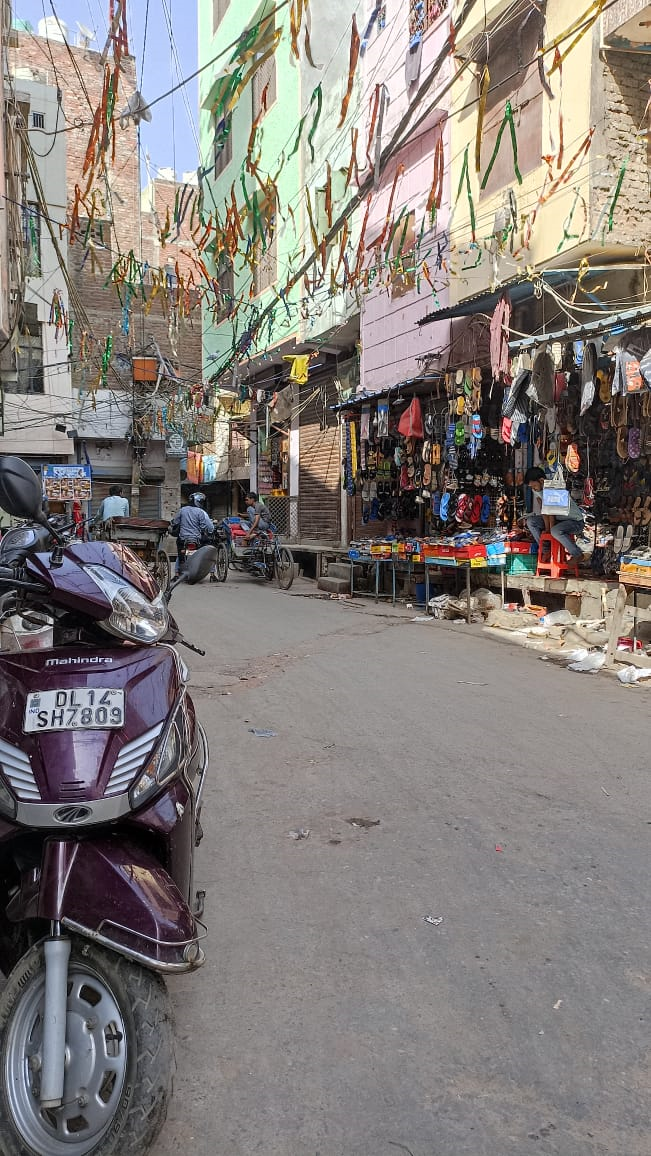‘Asia’s largest readymade garment market will soon be re-branded and repositioned to create more job opportunities for locals’.
New Delhi: The dusty small lanes and the uneven tracks of several galis in Gandhi Nagar market, New Delhi, the largest readymade garment market in Asia, will soon be re-branded and repositioned to create more job opportunities for the locals and businessmen. Just like any other business sector, the pandemic also resulted in a large-scale of unemployment among business owners, and this market has no different story to tell.
Recently, Delhi Deputy Chief Minister Manish Sisodia, presented a budget of Rs 75,800 crore for the fiscal year 2022–23 to achieve legal recognition, infrastructure rehabilitation, rebranding, marketing, and repositioning of the Gandhi Nagar market. In his speech, the deputy CM has added that this program is likely to create more than 40,000 new job opportunities over the next five years. To understand the difficulties, The Sunday Guardian went to explore the Gandhi Nagar Market and heard several complaints about the poor drainage system and the lack of multilevel parking, which eventually resulted in road blockades caused by huge tempos and trucks carrying all the materials and supplies.
When this correspondent met the president of the Association of Wholesale Readymade Garment Dealers (Gandhi Nagar), K.K. Balli, he listed several issues, including a lack of parking places, tangled electric cables, untreated sewage, road work, and the establishment of transportation companies in numerous colonies, such as the Gita colony, all of which have cluttered up the spaces. While explaining the problems with the allotment of parking spaces for the cars and trucks, he told this paper, “There is only one parking area available, which can accommodate 200-250 cars. However, the NGT ordered that the area be reduced, and as a result, just 40-50 cars can now be accommodated. There is also a tiny area nearby where only trucks are permitted to park. Due to the unavailability of parking spaces, there is always congestion on the roads and galis, adding woes to the shopkeepers and customers.”
He further added, “The roads haven’t been maintained in 10-12 years. We complained to the MCD, but no proper solution to this situation has been identified. They complain about the fund deficit.”
Several shopkeepers have complained that their supplies are affected during the rainy season, primarily because the water clogs the roads; as a result, many shops are forced to close for two to three hours every day during this season. This correspondent also received a report, which is roughly translated into English, stating, “There are not enough sewage pipelines in the Gandhi market. The officials have stated that the sewage lines in some areas are not sufficient. Commuters have also been inconvenienced by tangled power cables dangling from the poles. All of these issues must be taken into consideration by the Delhi administration. The major transformers are also located in the main areas of the market and must be relocated promptly.”
However, the east MCD mayor, Shyam Sunder Aggarwal, told this correspondent, “Shopkeepers have taken up more spaces than they were given, and for a multilevel parking spot, we have requested the DDA to provide land; it has almost been six months and we haven’t received any response.” He further said, “When it comes to sanitation, garbage trucks arrive every morning at 9 a.m. to clean the streets. However, after opening their stores, the majority of shopkeepers clean their premises, and instead of throwing trash in the bin, they throw it on the roads.”
The daily turnover of the Gandhi Nagar market is Rs 100 crore and has offered one lakh direct jobs and another 2-3 lakh indirect job opportunities. The jammed streets of the market are the trading center for many small, medium-sized, and large garment retailers. Almost every shop has buyers haggling over pricing and products. Many people are shopping while others are transporting goods to other states. While the majority pay in cash or by cheque, the others walk away with or without paying an advance for things that will be delivered to them later. This market has been a source of livelihood for around 5 lakh individuals. Nehru Gali and Janata Gali, for example, have a large number of shops selling women’s clothing, whereas Mahavir Gali sells jeans and jackets.

